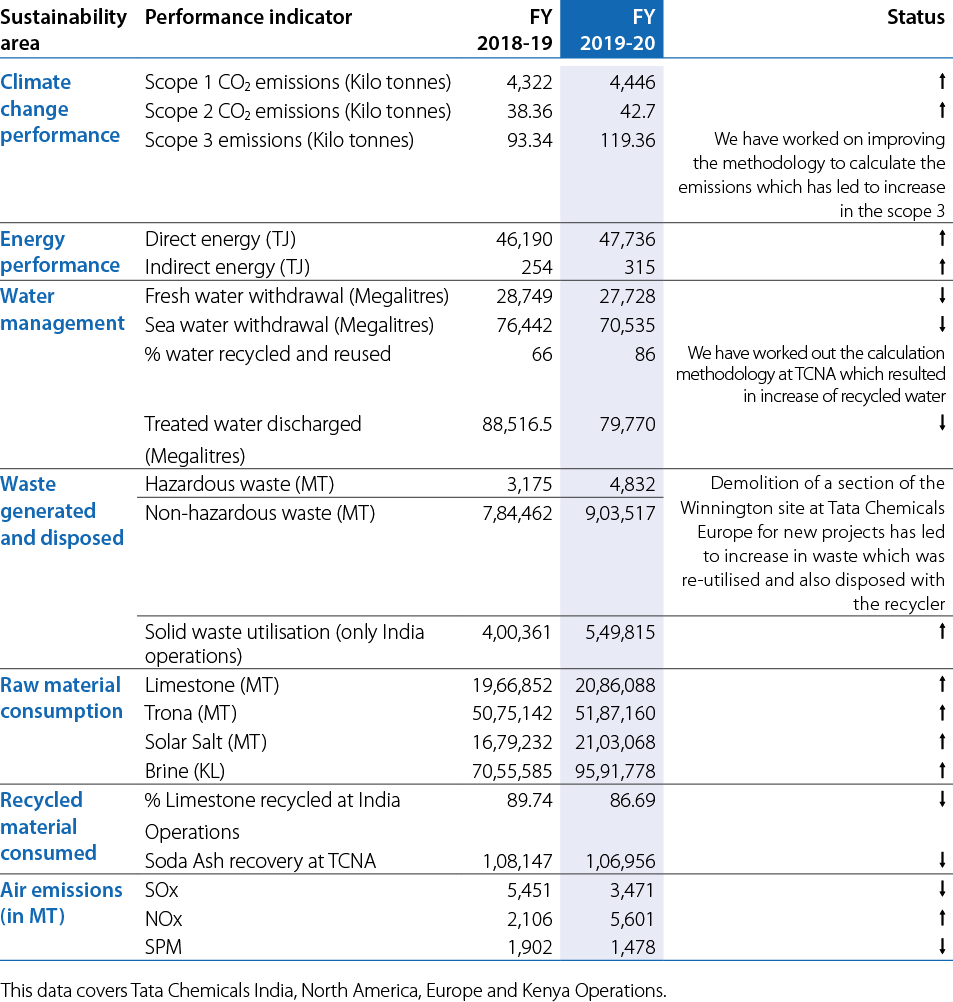Goals and targets

Maintaining business leadership position and focussing on cost efficiency
Focussing on high-return business and enhancing shareholders' value
Product stewardship
How are we achieving
Capacity expansion plan of major products with a focus on carbon reduction
Focus on developing value-added products (i.e. Bicarb, Highly Dispersible Silica)
Digital ecosystem to enhance operational efficiency and productivity
Reducing environmental impact by developing more water-based formulations than solvent-based products
Goals and targets

Commitment to Science Based Target initiative
Reducing environmental impact of our manufacturing operations through waste management and renewable energy initiatives
Focussing on reducing carbon emissions, becoming water neutral and achieving 100% packaging material recycling
How are we achieving
Conducting climate change risk assessment and waste mapping study
Promoting smart agriculture
Revamping energy and emissions roadmap at plant level
Lowering product lifecycle impact
Energy audits
Transitioning to clean fuels and technology
Initiating carbon capture and conversion to usable form project at TCE. Conducting feasibility study for more such initiatives
Implementing continuous air emissions monitoring systems
Biodiversity conservation projects
Responsible sourcing
Innovating to manage waste, especially plastic








Goals and targets
3 million tree plantations by 2030
Promoting species conservation
Strengthening biodiversity around our operations for both natural and human communities
How are we achieving
Plantation on 500 acres of land (biodiversity reserve, mangroves, mines area, salt works, and wastelands, new sites, etc.
Establishment of 'Prakriti' Mitra-Sakhi Mandals
Restoration and conservation of coral reefs: coverage of new reef in 2,000 m2 area